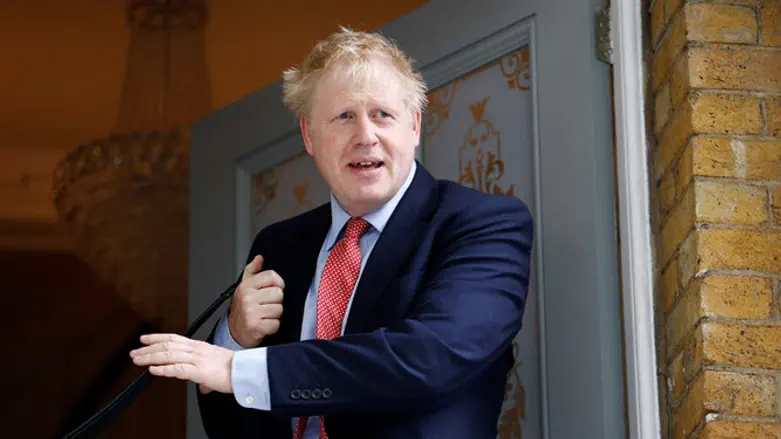
British MP Matthew Offord of the Conservative party told i24News on Tuesday he believes Boris Johnson's government will follow US President Donald Trump and withdraw from the 2015 nuclear deal between Iran and world powers.
Johnson on Tuesday won the race to become Britain's next prime minister, defeating current Foreign Secretary Jeremy Hunt by a margin of 66% to 34%, with 92,153 votes to Hunt’s 46,656.
Speaking to i24NEWS after Johnson's victory, the incumbent PM's fellow Conservative party member Offord said Britain is not seeking any sort of military confrontation, particularly in the wake of Iran’s capture of a British oil tanker in the Persian Gulf last week.
Still, Offord said there is a need for Britain to be "very firm" with Iran, saying he believes the UK will soon join the United States in withdrawing from the 2015 nuclear deal with world powers and reimpose sanctions, a catalyst for the recent wave of escalating tensions.
"We've now got to face that the nuclear deal is all but dead," Offord told i24NEWS.
Offord suggested that renegotiating a new nuclear deal might be the best way to solve the current situation without diverting to direct confrontation.
A new deal "can be a way forward by looking at what we can provide the Iranian regime without them losing face, but ensuring that they ratchet down their actions," Offord said, adding that there is a need to reign in Iranian actions in the wider Middle East.
US President Donald Trump withdrew last May from the nuclear deal between Iran and world powers, and later imposed two rounds of sanctions on Iran, the latest of which went into effect in November of 2018.
The European signatories to the 2015 deal – including Britain – did not agree with Trump’s decision to leave the agreement and vowed to help Iran evade the economic sanctions imposed by the US, shielding companies doing business with the rogue state in an effort to preserve the Iran nuclear deal.
In recent weeks, however, Iran has begun to roll back its commitments as part of the nuclear deal.
Three weeks ago the Islamic Republic announced that it had exceeded the amount of enriched uranium permitted under the deal. Several days later, Iran followed up by saying it had begun to enrich uranium to 5% purity instead of the 3.67% limit imposed under the JCPOA.
Last week, Iran warned the EU that it is prepared to end all of its commitments under the 2015 nuclear, and restore its nuclear program to the status quo ante, under which Tehran placed no limits on any areas of nuclear development.
